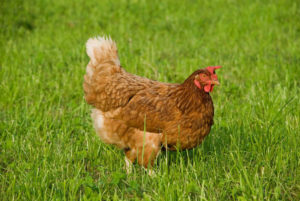Every summer, the chicken farms are working on heatstroke prevention and cooling, and they are all highly valued. How to prevent heat in science and what measures to reduce the temperature of the house are particularly necessary. In today’s world, there are many chicken farms in the heatstroke prevention and cooling, some concepts and some practices are not scientific enough, the common misunderstandings are as follows:
1. In order to help the chicken to cool down, add sodium bicarbonate to the drinking water, or add vitamin C at the same time.
The addition of sodium bicarbonate can effectively regulate the acid-base balance in chickens, inhibit central nervous system activity, and significantly improve the ability of chickens to resist heat stress. Adding 0.1% to 0.5% sodium bicarbonate to the chicken diet can increase the egg production rate and eggshell quality of the chicken, but at the same time reduce the feed intake of the salt to prevent the chicken from ingesting too much sodium ions. If the figure is convenient, adding sodium bicarbonate in water, because of the large amount of drinking water in summer chickens, means that the amount of sodium bicarbonate ingested is large, and excessive intake may cause poisoning, so it is best to add it to the feed. As for the addition of vitamin C, vitamin C is easily destroyed in the water to reduce the effect, and it is also preferable to add it to the feed. However, the two cannot be used at the same time, otherwise the efficacy will be reduced. In practice, vitamin C is used in the early stage of the high temperature season and sodium hydrogencarbonate is preferred in the later stage.

2. In order to prevent outbreaks of infectious diseases in summer flocks, it is best to vaccinate them through drinking water.
In the summer, due to the reduction in feed intake and the impact of high temperature, the resistance of the flock to the outside world is significantly reduced, and it is prone to various infectious diseases such as Escherichia coli and Newcastle disease. Vaccination of flocks is a necessary precaution. In fact, which kind of vaccination method to use depends on which method is suitable for immunization, which depends on the actual situation. If it is suitable for drinking water, it is also necessary to consider the high temperature in summer. The time to stop the water before vaccination must be shortened to prevent the chickens from causing heat stroke due to long-term water stoppage. At the same time, it should be considered that the time of drinking water immunization should not be too long, and the high temperature in the house should be prevented, resulting in failure or reduction of the vaccine in the water. Generally, before the summer drinking water is immunized, the water is stopped for about 1 hour, and the drinking water inoculation is controlled between 30 minutes and 45 minutes.
3. During the high temperature period, the chicken can be cooled down by increasing the humidity on the body and the ground.
The suitable relative humidity of laying hens is 50%-55%. If the relative humidity is greater than 72%, the chicken house is stuffy, the feathers are sticky and sticky, which is easy to cause diseases. If the relative humidity is lower than 45%, the dust inside the house is flying, and the chicken is prone to respiratory tract. Disease, so the humidity in the house should be strictly controlled, and the feces should be removed in time. In fact, the condition of the chicken farm, or the installation of wet curtains to cool down is better. If you rely on water spray, you should control the humidity. Excessive humidity is not conducive to cooling in the house. When spraying water, due to the low water temperature, the stress on chickens is high, and chickens are prone to colds or other diseases. A large number of experiments have proved that high temperature and high humidity are more likely to cause microbial growth and reproduction, which makes the feed moisturey and agglomerate, easy to induce and cause diseases, and is more harmful to chickens. At the same time, due to water pollution, high bacterial content, increased water consumption in summer, a series of intestinal diseases also occur frequently, such as changes in water taste, color and odor, resulting in reduced drinking water, or blocking water lines, between pollutants and additives. Cross-infection or reduced effect, etc., has long led to sub-health of animal groups and frequent intestinal diseases, so the water purification treatment is carried out while raising chickens and preventing heatstroke.
If you choose a reliable poultry equipment manufacturer, using fully automatic poultry farming equipment to raise chickens will help the chicken farms in summer to cool down and moisturize.